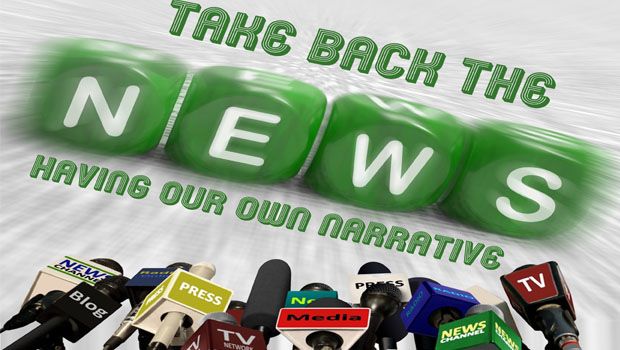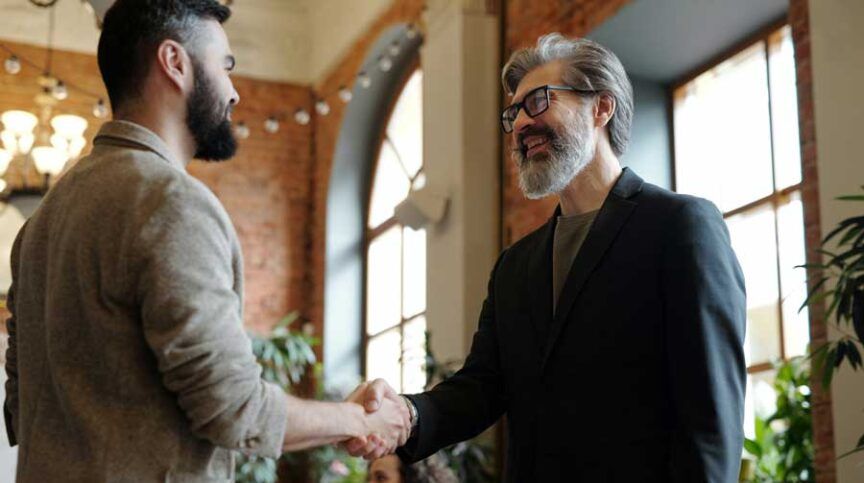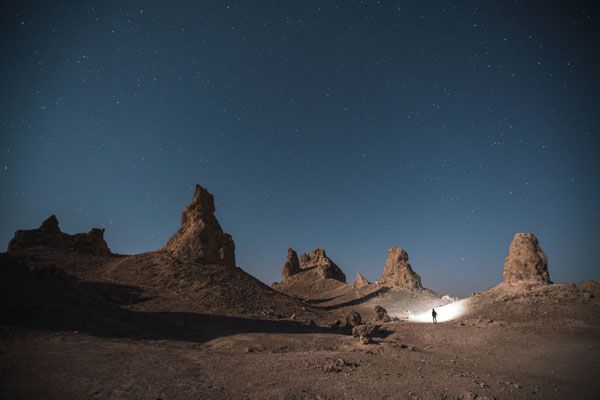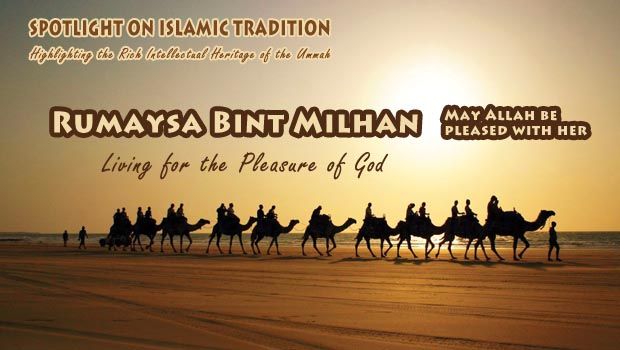It seems that every time an act of terrorism is performed in the name of Islam, reporting and discussions in the mainstream media and social media tend to follow a predictable pattern – almost as if there were a template that journalists and analysts pull out when discussing the incident. The media often gets its group-think going on “Islamic terrorism,” “Islamism,” and “jihadism.” A familiar discourse of linking Islam to violence unfolds and talk shows on television and radio channels and comment sections in newspapers and websites are inundated with debates discussing what drives Muslims to violence; questioning Quranic injunctions, especially those specific to war time; and examining the existence of blasphemy laws in various Muslim countries, among other topics.
A number of studies have been done in academia which have found Muslims are often negatively portrayed in popular media discourse. Such negative portrayals, though in existence for a long time, increased after the September 11 terrorist attacks on the World Trade Center in 2001. A recent study done by a group of social science researchers in 2014, titled “The rise of anti-Muslim prejudice: Media and Islamophobia in Europe and the United States,” found that media coverage about the building of the Islamic Community Center in New York in 2010 was predominantly negative and those exposed to this coverage had negative attitudes about Islam and Muslims.
In 2012, Christopher Bail, a sociologist at the University of North Carolina and the University of Michigan, conducted a study which found that negative portrayals of Muslims received more media attention than positive ones. Bail’s study also found that press releases from many Muslim organizations condemning acts of terrorism got lesser attention in the mainstream media than emotional messages from these organizations in response to acts of discrimination against Muslims.
It is unfortunate that positive everyday stories happening in the Muslim community rarely, if ever, make the headlines in the mainstream media. However, when negative incidents do happen and crimes are perpetrated by those who describe themselves as Muslims, the mainstream media are quick to associate that incident with Muslims and Islam generally, and promote a narrative about “Islamist violence” and “Islamic radicalism.” A study by Charles Kurzman in 2011 found that the terror incidents by self-described Muslims that are reported in the media account for less than .0002 percent of murders in the United States since the September 11 attacks and .0003 percent of deaths each day worldwide. Yet, sadly, these are the stories that would pop up if one were to search for “Islam” or “Muslim” on the website of any popular mainstream media outlet.
Discussing the media narrative about Islam, Nabil Echchaibi, a professor of journalism and mass communication at the University of Colorado Boulder, in a chapter on American Muslims and the media in “The Cambridge Companion to American Islam,” writes: “Most probably, the suspicion of Islam and Muslims is also bred and animated by a media framework that reduces Muslims primarily to the role of the reactive, reinforcing thereby a perception of either complacency and indifference or powerlessness in the face of an overwhelmingly brutal religious force that is Islamic radicalism.”
Anyone familiar with the workings of the newsroom would know that the practices, news values and deadlines in newsrooms facilitate this stereotypical discourse. Stereotypes become the common understandings journalists turn to when making sense of events as they happen. Misunderstandings and a lack of knowledge fuel negative portrayals. Under tight deadlines and the frenzy that accompanies breaking news events, it becomes increasingly easy to draw on these stereotypes. Add to that a lack of voices to correctly represent the Muslim community and you have the perfect recipe for misrepresentation.
Muslims like any other community in the world have any number of positive things happening within the diverse worldwide community every day. Why, then, do a few negative incidents come to define the overarching narrative about the community? Why do discussions about Islam in the media always tend to focus on issues of violence, terrorism, oppression and radicalism? Why does no one talk about the incredible spirit of volunteerism present in the Muslim community? Why aren’t there reports of achievements by Muslims in mainstream society? Why aren’t there discussions about campaigns and new projects in the community?
Part of this can definitely be attributed to mainstream media news values and a newsroom culture that has been shaped by years of similar practices driven by stereotypes and misunderstandings. But part of the blame also lies within our own community. The fact is, very few of us step up to try to change this narrative either by engaging with the mainstream media or by producing our own. Some of the ways we can try to change this narrative include having discussions with and sending letters to those in the mainstream media; by providing the mainstream media access to authentic Muslim voices to represent us; by working with the mainstream media either as journalists, producers, anchors, writers, commentators and analysts; and by producing and supporting our own media.
Anyone familiar with the workings of the newsroom would know that the practices, news values and deadlines in newsrooms facilitate this stereotypical discourse
Communicating with the Mainstream Media
This is one of the most common strategies Muslims have used to counter and respond to negative stereotyping of the community in the mainstream media. Individuals in the community and representative organizations have often written letters to the editor to be published or letters to media management to complain about the misrepresentation of Muslims in the media and suggest areas of improvement.
National advocacy organizations like the Council of American Islamic Relations (CAIR) and the National Council of Canadian Muslims (NCCM) have often issued statements, and sent letters and press releases to mainstream media organizations to complain about or respond to any misrepresentations of Muslims and Islam. These statements have often followed events in the national and global news like, for example, the terrorist attack at the Charlie Hebdo office in France and the Ottawa shooting at Parliament Hill, as well as responding to specific statements in the media or specific coverage in the media that was found to be biased. Among some of the aims these organizations mention is the goal of monitoring local and national media to challenge stereotypes about Islam and Muslims.
In addition to national and local Muslim advocacy organizations, individuals have also often written to the mainstream media to complain about or clarify misconceptions about Muslims. As readers and viewers of mainstream media and as active members of society, we should be more active in our engagement with the mainstream media when it comes to identifying and correcting misreporting and misrepresentations about Muslims. When negative events bring Muslims or Islam in the spotlight, one role we can play as individuals and as organizations is to condemn these acts and issue statements about them. We can also respond to specific mainstream media coverage that negatively represents Islam or Muslims in general by drawing attention to problems in such reporting or commentary and clarifying or correcting these misunderstandings. This would involve writing letters/emails to various mainstream media organizations, participating in online and offline campaigns to promote awareness and respond to mainstream media coverage and interacting with these media to draw attention to problematic coverage.
Providing Access to Authentic Muslim Voices
Some journalists and scholars, however, argue that this traditional mode of Muslim engagement with the mainstream media is ineffective. Canadian Muslim journalist, Nazim Baksh, a broadcast producer with the Canadian Broadcasting Corporation (CBC) wrote an essay suggesting a strategy of moving beyond what he calls this traditional method of “confrontation and accusations.” His essay, titled “Beyond Flak Attack: A New Engagement with the Newsroom,” discusses how this strategy whereby Muslims “launch letter-writing campaigns, file complaints to the media-licensing bodies or the Ombudsman, and initiate boycotts and protests” serves to “deepen the chasm between Muslims, whether they live in majority or minority societies, and the Western mass media.”
Baksh writes: “To get past this impasse Muslims must abandon a media strategy that targets journalists with allegations of bias, lies, bigotry, racism and prejudice. Such accusations are usually interpreted as deeply personal in nature and perhaps will, more often than not, force journalists to defend their reports, even when they contain a mountain of factual mistakes, innuendos, generalizations, and stereotypes.”
Baksh does not advocate a complete end to what he calls media flak, but he proposes the strategy of establishing a Muslim equivalent of the Institute for Public Accuracy (IPA) to effectively get alternative messages into the mainstream media. The IPA, which was set up in the late 1990s with the aim of ensuring that certain issues of public policy were addressed in the mainstream media, utilized the media’s dependence on a body of experts to provide analysis and commentary. The organization maintained a detailed and constantly updated database of producers, commentators, and journalists at media organizations across North America and whenever there would be a breaking news event it would send out a list of experts that it wanted to promote to provide comment on a number of issues in the news. Baksh says that a Muslim equivalent of such an organization would be able to shape stories in the mainstream media by providing its own body of experts to the mainstream media.
A somewhat similar suggestion was recently put forward by renowned Islamic scholar Yasir Qadhi on his Facebook page where he encouraged members to e-mail mainstream media organizations with the names of Muslim voices they think represent them. Qadhi pointed to the fact that the media often do not know who to choose to interview as experts and commentators from the Muslim community, and most of the time pick people who have been in the spotlight often for negative reasons. “If you want more mainstream voices to be heard on national media, such as CNN, NPR, and others, then YOU the people must tell these agencies who you want. Rather than having some crazy fanatics, or people with strange views, or people who don’t even believe in our faith, represent us, we need to pressure these news agencies to put on mainstream Muslims who can vocalize what we believe,” Qadhi wrote on his page.
By drawing the mainstream media’s attention towards experts that we think represent us, we can try to prevent the misrepresentation and misunderstandings that often result from the lack of authentic Muslim voices in the mass media.
Having our own media lets us have a platform to write our own narratives, tell our own stories, discuss and debate issues of importance to our community and foster a sense of identity and unity
Working with the Mainstream Media
While there are very few authentic Muslim voices contacted as commentators and experts by the mainstream, there are fewer Muslims who work in the mainstream media as journalists, reporters, producers, editors, and writers. In order to have Muslim perspectives in the mainstream media, we need to have Muslims working within those media. If we always have someone else telling our stories, as outsiders looking in, we cannot expect the correct representation of our issues. This applies as much to the entertainment media as it does to the news media. For many ordinary North Americans who do not know Muslims in real life, their only source of having any perception about this community is shaped by what they see in the media. If they always see Muslims as terrorists, ignorant oppressors, and criminals, this is how they will be viewing us. Changing these perceptions involves working on representing the average Muslim to the average reader or viewer. We need the media to cover more stories about everyday happenings in the Muslim community. We need them to cover Muslim charities doing commendable work in their communities. We need them to cover Muslim members of congress and councillors and the work they are doing for their communities. We need them to cover Muslim athletes and their struggles and achievements. We need them to represent Muslims as ordinary Americans and ordinary Canadians and as beneficial members of society. We need ordinary Muslims featured in films, movies, and sitcoms.
More Muslims need to train as journalists and work in the mainstream media. We also need members of our community who may be experts in their field like Islamic scholars, human rights activists, lawyers, academics, sociologists, psychologists, diplomats, and others, to work with the mainstream media as commentators and analysts. This would include giving interviews as experts and writing features and op-ed pieces when comments are needed in their area of expertise.
Producing and Supporting Our Media
In addition to working with the mainstream media, we must also have our own media. It is true that ownership and established practices have a major effect on the goals of different media and consequently the kind of content they run. And that is why, even if we try very hard to engage with the mainstream media and even work with them, we will be unable to have a complete representation of all our issues in their proper context.
The mainstream media with their wide audience are not interested in covering the day-to-day stories of different communities. One cannot even realistically expect them to cover all the issues and stories of each different community in the world or a given region of the world. Stories that are important to our community, like for example, the opening of a new mosque or Islamic center in an area or a national Islamic convention in the country may not necessarily be of interest to the mainstream media’s wide and diverse audience. Therefore, in order for our stories to be told and in order to have a place where we can discuss and debate issues of importance specific to our community, we must have our own media. Having our own media lets us have a platform to write our own narratives, tell our own stories, and to tell them the way we want to tell them, discuss and debate issues of importance to our community and foster a sense of identity and unity among its members. In addition to this, our own media can help counter stereotypes and misrepresentation promoted in the mainstream media and address specific cases of misrepresentation when they occur. Our own media can in this way serve as a necessary alternative and provide a mechanism of checks and balances to the mainstream media.
Although there are a number of such Muslim media in existence today, and a number which have populated the Muslim media landscape in the past but have been discontinued due to sustainability issues, the need for more such media is always there. Muslim media like newspapers, magazines, websites, blogging websites, radio shows, television shows, podcasts, and video streaming sites perform important functions in the communities they serve. They have given a voice to the marginalized, countered stereotypes, educated, informed, and raised awareness about important issues, triggered valuable debates in the community, fostered political and social engagement, and simply provided a platform for a number of stories that would otherwise not have been available.
However, many of these Muslim media that have existed in the past were unable to survive the financial, logistic, and professional challenges that are a part of the journalism industry. The history of the Muslim media in North America has been spotty and inconsistent with very few long lasting initiatives. That is where our second role comes in with regards to these media: that of supporting our own media. Why are Muslim media so inconsistent and financially unstable? Why do they find it so difficult to survive? Why do most of them close down due to “financial problems”? Without support from the community, these media are bound to run into such problems. Our community has a number of successful businesses and members who are working with major multinational corporations and those that have been blessed with many resources and skills. Why don’t they support Muslim media by allotting a portion of their advertising budgets to them? Why don’t we support them with donations? Why don’t we volunteer our time and services to helping our own media?
Until we as a community take responsibility for our media and for representations of our community in the mainstream media, we will not be able to change the narrative about Islam and Muslims. It is easy to sit and complain and have armchair discussions about how the media is misrepresenting us, but it is difficult to actually do something about it. As individuals, organizations and communities we need to step up and play our part.





